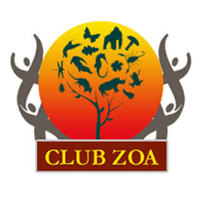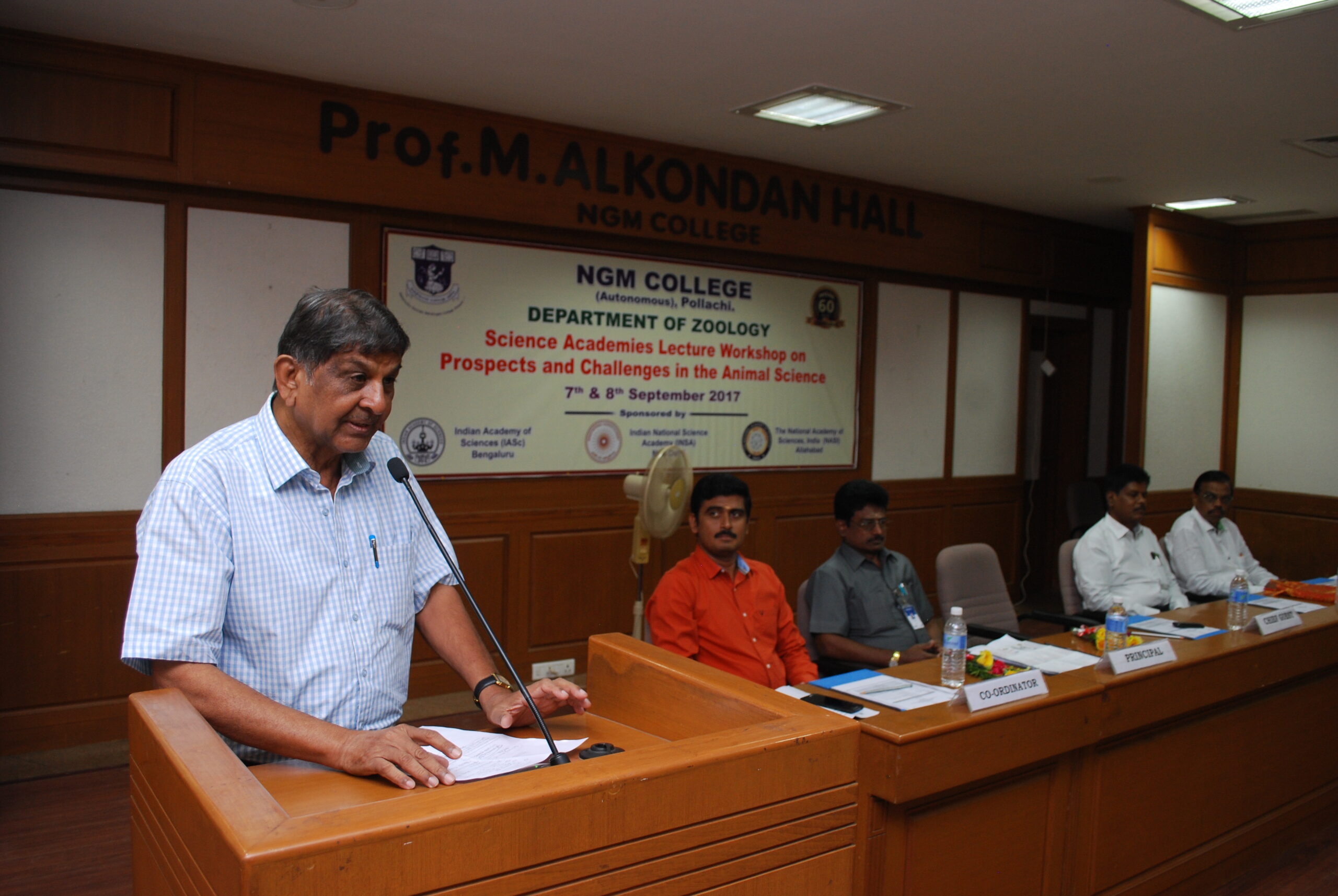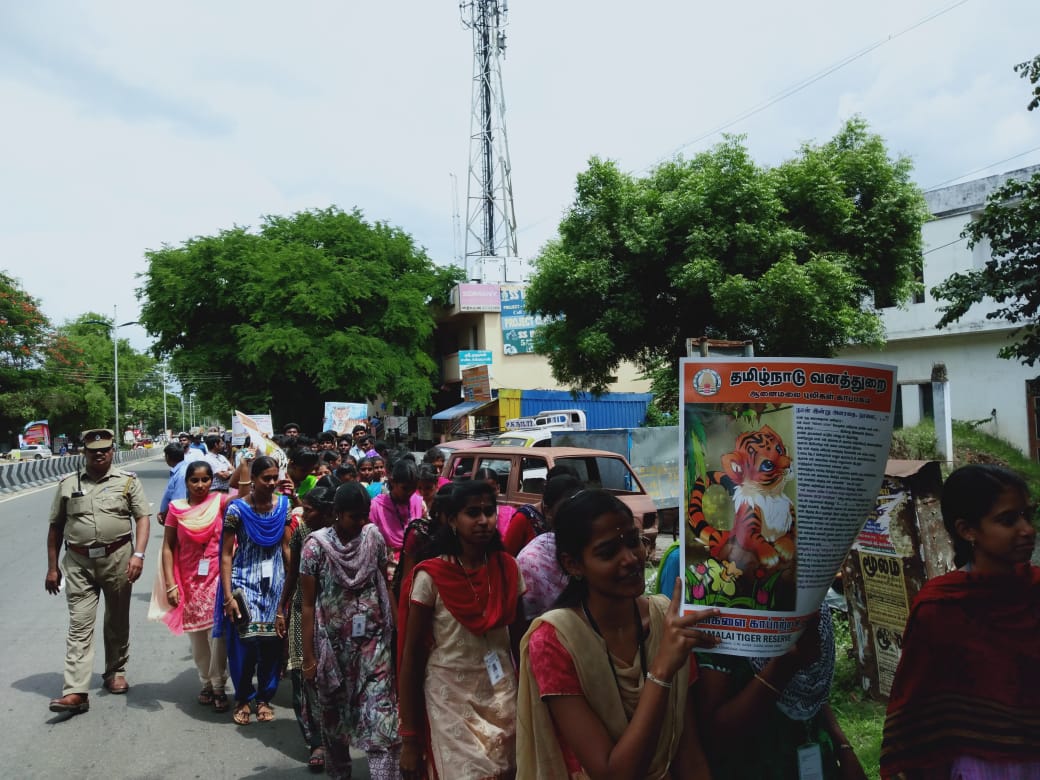The department of biology existed in our college right from its inception from 1957. Our department is a dynamic modern school of biological studies with a reputation of rigorous academic standards innovation and excellence in teaching and research. Our course was completely revamped keeping in view the requirements of students both in their higher studies and job markets. We have dedicated team of staff members with an attitude of encouraging and innovating, providing an environment of professional learning and development and creating values for students through sustained academic growth and skill orientation. Zoology was thought as a subject to the students of pre university course with the introduction of B Sc. Botany, Zoology has been offered as an ancillary subject To the students of botany major from 1972. The B.Sc. Degree in Zoology was introduced in 1982. A variety of teaching and learning techniques has been employed to impart knowledge and skills to students. Alumni in of our department have made their marks in various institutions around the world.
Department Profile
Department of Zoology

Vision
Enlightening the students with total dedication to bring out the hidden skills, creativity and human excellence with due emphasis on knowledge about recent development in the field of biology and mould them as responsible citizens.
Mission
To gain knowledge about origin of life, animal ethics and evidences of evolution To prepare the students with required skills to make them employable when they finish Zoology programme
Highlights
INFRASTRUCTURE
• Glowing collection of books in the Department library
• Around 500 specimens in the Department museum
• ICT Enabled teaching methods
• Well-equipped virtual lab
• Field based studies
• Special lectures and demos given by subject experts
• Hands on training
• Modernized environmental quality parameters analyzing equipment’s
POTENTIAL FEATURES
• Well designed national level curriculum- employability/ entrepreneurship/ skill development.
• Emerging fields were included.
• Curriculum oriented filed studies/ experiments like wildlife census.
• Teaching faculties are highly committed with positive attitude.
• Students are motivated to research and present their results in conferences, seminars,
symposium, workshops.
• Employability training’s like Vermicomposting, Bee keeping and honey processing, Aquarium
maintenance, Fish feed preparation, Silkworm rearing techniques, Clinical laboratory
techniques.
• Students get through the national level tests like JAM/ GATE/ CUET/TNPSC/ SSC etc.,
• Our regular recruiters in Medical coding – Episource, Omega healthcare, First source, Visionary
rcm info tech and also our students placed in the IT field like Infosys, TCS, Wipro, Accenture
etc.,
Association
Zoology department established a club named “Club Zoa” for the theme cosmo learning of diverse life forms and it’s interacting with their environment. A host of co-curricular activities are organised every academic year to make learning beyond the class room activities which include seminars, symposium guest lecturer and outreach programmes through “Club Zoa” a departmental student participatory club.

- Faculty
- Programme Outcomes (PEO, PO & PSO)
- Syllabus
- Calendar of Events
- Research & Awards
- Publications
- News & Events
- Photos & Videos
Program Educational Objectives:
PEO1: Enhanced the professional skills by means of continuous education and development.
PEO2: Express a mastery of discipline, precise information and exhibit analytical and practical skills. Exhibit professional interigrity and the capability for ethical decision making
PEO3: Graduate will recognize the need and apply their knowledge in general and various discipline areas.
PEO4: Pursue lifelong learning and continuous improvement of their knowledge and skills in the diverse field with the highest professional and ethical standards.
PEO5: Skill to function on multidiscipline environment to meet desired needs within realistic constraints such as environmental, social, ethical, health, safety, and sustainability.
Program Outcomes:
Scientific Temper, Individual and Team Work Communication
PO1: Students gain information and skill in the fundamentals of animal sciences, understands the multifarious connections along with different living organisms.
Inter-disciplinary Exposure
PO2: Students achieve knowledge of internal structure of cell, its functions in control of various metabolic functions of organisms. Correlates the physiological, Biochemical processes of animals and relationship of organ systems.
Education and Society Environment and Sustainability
PO3: Understanding of environmental conservation processes, pollution control methods and its importance. Students also gain knowledge and awareness about biodiversity as well as the importance of protection of endangered species.
Vocational and Industry Exposure
PO4: Understands about various concepts and importance of Biotechnology, Bioinformatics, Genetics, Genetic engineering in industry and day today human life.
Problem Analysis
PO5: Students will be able to compare and distinguish the characteristics of animals that discriminate them from other forms of life.
Innovation and Entrepreneurship
PO6: Achieve knowledge in applied fields like Sericulture, Aquaculture and Apiculture alongside Statistical and Laboratory techniques.
Life-long Learning
PO7: Understanding of Zoology to one’s own life and apply the knowledge judicially and remain constantly employable.
Program Specific Outcomes
PSO-01: To understand the life of organisms with their diversity, morphological, ecological, physiological and evolutionary significance at cellular and molecular level.
PSO-02: To understand the principals and applications of zoology in daily life by equipping practical and field based study knowledge.
2018-2021.pdf
Open 1.8 MB 2025-05-06 May 6, 2025 2025-03-01 March 1, 20252019-2022.pdf
Open 599.19 KB 2025-05-06 May 6, 2025 2025-03-01 March 1, 20252020-2023.pdf
Open 619.61 KB 2025-05-06 May 6, 2025 2025-03-01 March 1, 20252021-2024.pdf
Open 2.08 MB 2025-05-06 May 6, 2025 2025-03-01 March 1, 20252022-2025.pdf
Open 2.1 MB 2025-05-06 May 6, 2025 2025-03-01 March 1, 20252023-2026.pdf
Open 1.68 MB 2025-05-06 May 6, 2025 2025-03-01 March 1, 20252024-2027-Syllabus.pdf
Open 2.3 MB 2025-05-06 May 6, 2025 2025-03-01 March 1, 20257
2018-2019.pdf
Open 261.6 KB 2025-05-06 May 6, 2025 2025-03-01 March 1, 20252019-2020.pdf
Open 250.32 KB 2025-05-06 May 6, 2025 2025-03-01 March 1, 20252020-2021.pdf
Open 210.97 KB 2025-05-06 May 6, 2025 2025-03-01 March 1, 20252021-2022.pdf
Open 360.37 KB 2025-05-06 May 6, 2025 2025-03-01 March 1, 20252022-2023.pdf
Open 495.54 KB 2025-05-06 May 6, 2025 2025-03-01 March 1, 20252023-2024.pdf
Open 575.18 KB 2025-05-06 May 6, 2025 2025-03-01 March 1, 202513
| Research & Awards (Details) | PDF File |
|---|
Biosynthesis and Characterization of Silver Nanoparticles Using Barleria cuspidata Leaves Extract and Mechanism of Antimicrobial Action of Selected Human Pathogens
A. Irudaya Lourdu Gladis , V. Jemima Florence Borgia , R. Lakshmanan , S. Mariselvi and S. N. Suresh
Uttar Pradesh Journal of Zoology
2023
Activities of Primordial Radionuclides in the tobacco cultivated fields of Dindigul and Erode districts (Tamil Nadu, India)
M. Periyasamy, S. Christobher, P. Athif, K. Jishnu, K. Pradeep, PK. Sanesh, HE. Syed Mohamed
Journal of Chemical Health Risks
2023
Evaluation of Nicotine levels in Smokers Bloodand Urine samples
Christobher S, Periyasamy M, Suganthi P, Manivel V , Athif, P.
Hightechnology letters
2023
Analysis and improvement in commonly used drugs using bioinformatics
S.Mariselvi, Santosh Karajgi, Anil Kumar Swati Das, Ayesha Tabassum
Bulletin of Environment, Pharmacology and Life Sciences
2023
Alternative medicines to enhance the efficacy and safety of Anticancer therapy
S.Mariselvi, Alok Tiwari, Sivakumar Ponnusamy , Sumanta Bhattacharya
Bulletin of Environment, Pharmacology and Life Sciences
2022
Bioanalytic sciences for reconstructing membrane
S.Mariselvi, Manish Upadhyay Sivakumar Ponnusamy
Bulletin of Environment, Pharmacology and Life Sciences
2022
Natural drug products to adopt a complex approach to Biogenics
S. Mariselvi, Anil Kumar, P.Poongothai, B Prabhu Shankar, Subbulakshmi Packirisamy
Bulletin of Environment, Pharmacology and Life Sciences
2022
Culture of Earthworm, Perionyx excavatus (Perrier) and Nutrient Analysis Using Municipal Solid Waste
S. Udayakumar, M. Purushothaman and S. Jayalakshmi
Culture of Earthworm, Perionyx excavatus (Perrier) and Nutrient Analysis Using Municipal Solid Waste
2022
Analysis of Bioinformatics on Gene Expression and Discovery of Medicines
Debabrata Mohanty, S.Mariselvi , Sajith.S , Sivakumar Ponnusamy
Bulletin of Environment, Pharmacology and Life Sciences
2022
Development of clinical biochemistry to maintain performance in
S.Mariselvi, Santosh Karajgi, E.N. Gaviraj, V. Uma Maheswara Rao
Bulletin of Environment, Pharmacology and Life Sciences
2022
Research on health care data to control illness-related challenges
Arun B Prasad, Uriti Sri Venkatesh , S.Mariselvi
Bulletin of Environment, Pharmacology and Life Sciences
2022
Role of GPS Tracking in Monitoring the survival and hunting of
Raghunandan G H, S.Mariselvi, Priya J, Surya Narayan Sahu
Bulletin of Environment, Pharmacology and Life Sciences
2022
Facile Synthesis of Silver Nanoparticles from Sesbania Sesban Var Bicolor Leaf Extract and Its Antibacterial Efficay
Kalitha Parveen. P, M. Thiri sangavi, Asmath Hasina Fathima, S Christober
International Journal of All Research Education and Scientific Methods
2021
Insecticidal Effect of Adathoda vasica (Leaf) andTrigonella foenum – Graecum (Seed) Extractsagainst Mealy Bugs (Maconellicoccus hirsutus) On Hibiscus Rosa sinensis Plant
Kalitha Parveen Peer Mohamed, M Sundaralingam, Athira Sukumaran, Christobher S
Asian Journal of Biological and Life Sciences
2021
Physico-chemical studies of amaravathi and aliyar reservoirs, tamil nadu, India
Eswaran.N and Mariselvi. S
Sambodhi
2020
Effect of gir cow urine in growth to freshwater fish cirrhinus mrigala fingerlings (Hamilton)
S.Jayalakshmi and Dr.S.Padmapriya
International Journal of Research and Analytical Reviews
2020
Effect of cowdung along with free and immobilized probiotic bacteria on growth and food utilization of Cyprinus carpio under laboratory condition.
Jayalakshmi S. and Ebanasar J.
Journal of Emerging Technologies and Innovative Research
2020
Activity concentration of polonium‑210 and lead‑210 in tobacco products and annual committed effective dose to tobacco usersin Tiruchirappalli District (Tamil Nadu, India
Christobher, S., Periyasamy, M., Athif, P., Syed Mohamed H.E. Sadiq Bukhari, A., Shahul Hameed, P
Journal of Radioanalytical and Nuclear Chemistry
2019
No events found.







